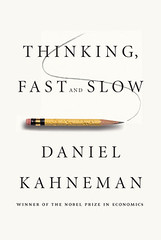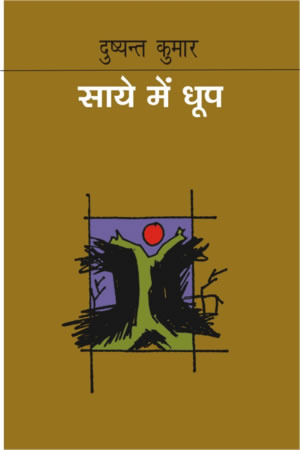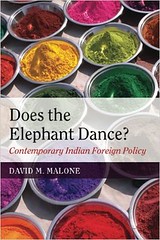तुमने कहा था
मेरी अनास्था पर सवाल करते हुये
कि 'फिलॉसोफी' पढ़ते-पढ़ते
हर बात पर सवाल करते-करते
एक दिन मैं आवारा हो ही जाऊँगा।
मैंने कहा था
कि तुम्हारी 'स्माल टॉक' में
दुनिया बदलने की ताकत नहीं है
तुम्हारी बातों में
विद्रोह की भावना नहीं
समर्पण की सम्भावना है
मुझे तुम्हारी बातें
चटपटी, प्रपंच वाली, मसालेदार
साधारण सी लगती हैं
मैं रहस्य की खोज में
नित नये नये वाद पढ़ रहा था
और अस्तित्व की गुत्थियों में
और ज्यादा उलझता जा रहा था
तुमने हमेशा मेरे 'फिलॉसफिकल' संकट को
सुलझाने की बजाय
दो-चार फ़िल्मी उदाहरणों के साथ
माहौल को हल्का करने की कोशिश की थी
मैं यथार्थ की तलाश में
जंगल, नदी, पहाड़, खण्डहर भटकता रहा था
तुमने अपने लबों से
मेरी आँखें बंद करके
मुझे 'यूटोपिया' दिखा दिया था
मेरे सत्य और असत्य
उद्देश्य और निरुद्द्येश्य
नैतिकता और अनैतिकता में
फ़र्क़ करने के बुखार को
तुमने अपने 'हीलिंग टच' से सही करने का प्रयास किया था
मुझे ये सब पता नहीं क्यों तब
'इंटेलेक्चुअली' बहुत हल्का लगता था।
बहुत साल बाद
अब ज्ञान की अपेक्षाओं तले दबा जा रहा हूँ
नैतिकता अनैतिकता सब बातें बेसिरपैर, बेमानी लगती हैं
विद्रोह की आग जो मैंने खुद लगाई थी
उसी आग में धुआँ हुआ जा रहा हूँ
लोगों को समझना
और खुद को समझाना
मैंने कितना मुश्किल बना लिया है
अनियंत्रित बस बहे जा रहा हूँ
और अगर सच कहूँ तो
अरस्तू, प्लेटो, वॉल्टेयर, कांट, कैमू को पढ़ते हुये
कभी-कभी तुम्हारी 'स्माल टॉक' को बहुत 'मिस' करता हूँ
कभी आकर देखना
तुम्हारी बात सच हो गयी है,
अब सबने मान भी लिया है,
मैं आवारा हो ही गया हूँ।
मेरी अनास्था पर सवाल करते हुये
कि 'फिलॉसोफी' पढ़ते-पढ़ते
हर बात पर सवाल करते-करते
एक दिन मैं आवारा हो ही जाऊँगा।
मैंने कहा था
कि तुम्हारी 'स्माल टॉक' में
दुनिया बदलने की ताकत नहीं है
तुम्हारी बातों में
विद्रोह की भावना नहीं
समर्पण की सम्भावना है
मुझे तुम्हारी बातें
चटपटी, प्रपंच वाली, मसालेदार
साधारण सी लगती हैं
मैं रहस्य की खोज में
नित नये नये वाद पढ़ रहा था
और अस्तित्व की गुत्थियों में
और ज्यादा उलझता जा रहा था
तुमने हमेशा मेरे 'फिलॉसफिकल' संकट को
सुलझाने की बजाय
दो-चार फ़िल्मी उदाहरणों के साथ
माहौल को हल्का करने की कोशिश की थी
मैं यथार्थ की तलाश में
जंगल, नदी, पहाड़, खण्डहर भटकता रहा था
तुमने अपने लबों से
मेरी आँखें बंद करके
मुझे 'यूटोपिया' दिखा दिया था
मेरे सत्य और असत्य
उद्देश्य और निरुद्द्येश्य
नैतिकता और अनैतिकता में
फ़र्क़ करने के बुखार को
तुमने अपने 'हीलिंग टच' से सही करने का प्रयास किया था
मुझे ये सब पता नहीं क्यों तब
'इंटेलेक्चुअली' बहुत हल्का लगता था।
बहुत साल बाद
अब ज्ञान की अपेक्षाओं तले दबा जा रहा हूँ
नैतिकता अनैतिकता सब बातें बेसिरपैर, बेमानी लगती हैं
विद्रोह की आग जो मैंने खुद लगाई थी
उसी आग में धुआँ हुआ जा रहा हूँ
लोगों को समझना
और खुद को समझाना
मैंने कितना मुश्किल बना लिया है
अनियंत्रित बस बहे जा रहा हूँ
और अगर सच कहूँ तो
अरस्तू, प्लेटो, वॉल्टेयर, कांट, कैमू को पढ़ते हुये
कभी-कभी तुम्हारी 'स्माल टॉक' को बहुत 'मिस' करता हूँ
कभी आकर देखना
तुम्हारी बात सच हो गयी है,
अब सबने मान भी लिया है,
मैं आवारा हो ही गया हूँ।



